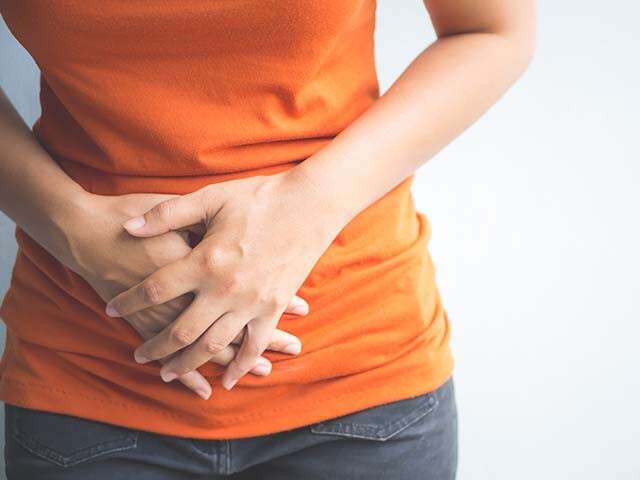
Yeast infections, also known as candidiasis, are a common concern among women. They occur when there’s an overgrowth of the Candida fungus in the vaginal area, leading to uncomfortable symptoms such as itching, burning, and discharge. While yeast infections are typically not a severe health threat, they can be bothersome and impact your quality of life. Fortunately, there are steps you can take to prevent yeast infections and self-care strategies to manage them when they occur. In this blog post, we’ll explore yeast infection prevention and self-care tips to help you stay comfortable and maintain vaginal health.
Understanding Yeast Infections
Before we dive into prevention and self-care, it’s essential to understand what yeast infections are and what causes them.
Causes: Yeast infections are primarily caused by an overgrowth of the Candida fungus, most commonly Candida albicans, in the vaginal area. This overgrowth can occur due to various factors, including hormonal changes, antibiotics, a weakened immune system, and certain lifestyle habits.
Symptoms: Common symptoms of yeast infections include:
- Itching and burning: The vaginal area may feel intensely itchy and uncomfortable.
- Abnormal discharge: You may notice a thick, white, cottage cheese-like discharge.
- Pain or discomfort: Yeast infections can cause pain during sexual intercourse or urination.
Risk Factors: Several factors increase the risk of yeast infections, including:
- Antibiotic use: Antibiotics can disrupt the balance of vaginal bacteria, making it easier for yeast to overgrow.
- Hormonal changes: Hormonal fluctuations during pregnancy, menstruation, or menopause can contribute to yeast infections.
- Diabetes: Uncontrolled diabetes can increase the likelihood of yeast infections.
- Diet: A diet high in sugar and refined carbohydrates can promote yeast overgrowth.
- Tight clothing: Wearing tight-fitting clothing or non-breathable fabrics can create a favorable environment for yeast.
- Weakened immune system: Conditions that weaken the immune system, such as HIV/AIDS, can make yeast infections more likely.

Preventing Yeast Infections
Preventing yeast infections involves adopting healthy habits and making lifestyle changes to maintain a balanced vaginal environment. Here are some effective prevention strategies:
1. Maintain Good Hygiene
- Gentle cleansing: Clean the vaginal area with mild, fragrance-free soap and warm water. Avoid harsh soaps, douches, and scented products, as they can disrupt the natural balance of vaginal flora.
- Front to back: Always wipe from front to back after using the toilet to prevent the spread of bacteria from the anal area to the vagina.
2. Wear Breathable Fabrics
- Cotton underwear: Opt for cotton underwear and avoid tight-fitting or non-breathable fabrics. Cotton allows better airflow and helps keep the vaginal area dry.
3. Practice Safe Sex
- Use condoms: Consistently using condoms can reduce the risk of sexually transmitted infections (STIs) that may contribute to yeast infections.
4. Manage Blood Sugar
- Control diabetes: If you have diabetes, work closely with your healthcare provider to effectively manage your blood sugar levels.
5. Avoid Excessive Antibiotics
- Use antibiotics judiciously: When prescribed antibiotics, take the full course as directed by your healthcare provider. Avoid unnecessary antibiotic use.
6. Limit Sugary Foods
- Balanced diet: Maintain a balanced diet that limits sugar and refined carbohydrates, as they can promote yeast overgrowth.
7. Stay Dry
- Change wet clothing: After swimming or exercising, change out of wet swimsuits or sweaty workout gear promptly.
8. Probiotics
- Probiotic supplements: Some studies suggest that taking probiotic supplements containing lactobacillus strains may help maintain healthy vaginal flora. Consult with a healthcare provider before starting any supplements.
9. Manage Stress
- Stress management: High stress levels can weaken the immune system. Practice stress-reduction techniques such as yoga, meditation, or deep breathing exercises.
Self-Care for Yeast Infections
Despite your best efforts, yeast infections can still occur. When they do, here are self-care strategies to help manage the symptoms and promote healing:
1. Over-the-Counter Treatments
- Antifungal creams: Over-the-counter (OTC) antifungal creams or suppositories containing clotrimazole, miconazole, or tioconazole are available to treat yeast infections. Follow the instructions on the package carefully.
- Oral antifungal medication: Sometimes, your healthcare provider may recommend oral antifungal medication for more severe or recurrent yeast infections.
2. Avoid Irritants
- Avoid irritants: During a yeast infection, avoid using scented products, douches, and feminine hygiene sprays, as they can exacerbate symptoms.
3. Soothing Compress
- Cool compress: Apply a cool, damp cloth to the vaginal area to relieve itching and discomfort.
4. Stay Dry
- Keep dry: Wear breathable cotton underwear and avoid tight-fitting clothing to prevent moisture buildup in the vaginal area.
5. Limit Irritation
- Avoid sexual activity: It’s best to abstain from sexual intercourse during a yeast infection to prevent further irritation. If you choose to engage in sexual activity, use a condom.
6. Follow Medication Instructions
- Medication regimen: If you’re using OTC antifungal treatments or prescribed medication, adhere to the recommended treatment duration, even if your symptoms improve before finishing the course.
7. Consult a Healthcare Provider
- Seek medical advice: If your symptoms persist, worsen, or recur frequently, consult a healthcare provider. They can assess your condition, recommend appropriate treatments, and rule out other potential causes of your symptoms.
When to See a Healthcare Provider
While most yeast infections can be managed at home with OTC treatments, there are situations where it’s crucial to consult a healthcare provider:
- If you’re experiencing your first yeast infection or are unsure about the diagnosis.
- If your symptoms are severe, causing extreme discomfort, or not improving with OTC treatments.
- If you’re pregnant, some treatments may not be suitable during pregnancy.
- If you have recurring yeast infections, which may require further evaluation to identify underlying causes.
- If you have a weakened immune system or a medical condition that may complicate treatment.
Yeast infections are common among women, but they can be managed effectively with proper prevention and self-care strategies. By adopting healthy hygiene practices, wearing breathable fabrics, practicing safe sex, and managing factors that increase your risk, you can reduce the likelihood of yeast infections with these tips from HealthSoul. If you do develop a yeast infection, follow self-care tips and consult a healthcare provider when needed to ensure prompt and effective treatment. With the right approach, you can maintain vaginal health and comfort.




